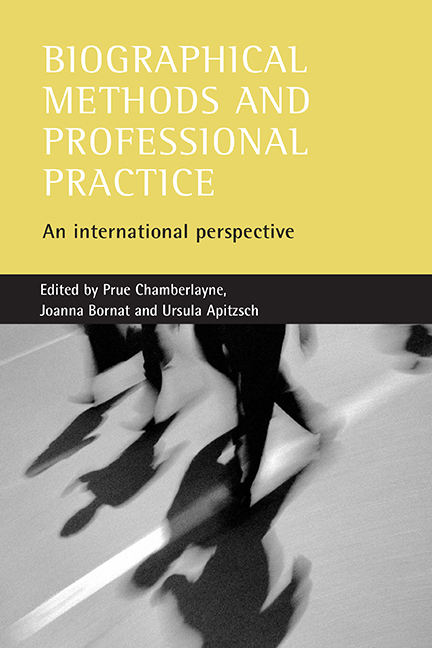Book contents
- Frontmatter
- Contents
- Notes on contributors
- one Introduction
- Part One Putting the subject into policy and practice
- Part Two Subjectivity in context
- Part Three Self-awareness in research and practice
- Part Four Recognising trajectories of disempowerment
- Part Five Biographical resources in education and training
- Index
seven - A socially and historically contextualised psychoanalytic perspective: Holocaust survival and suffering
Published online by Cambridge University Press: 20 January 2022
- Frontmatter
- Contents
- Notes on contributors
- one Introduction
- Part One Putting the subject into policy and practice
- Part Two Subjectivity in context
- Part Three Self-awareness in research and practice
- Part Four Recognising trajectories of disempowerment
- Part Five Biographical resources in education and training
- Index
Summary
The Holocaust did not only divide humanity into survivors, bystanders, perpetrators and rescuers and define generations as first, second and third generations of each category. The Holocaust also reinforced perspectives that became associated with the construction of collective memory, especially in countries where society identified itself, or was identified by, these categories, specifically Israel and Germany. ‘Who was a Holocaust survivor?’ was determined first legally and then historically (Gutman, 1990). In Israel, this identity became an important issue in terms of social labelling in the 1950s, and later became salient in terms of self-chosen categorisation in the 1980s and 1990s (Bar-On, 1995a). In Germany, social oblivion makes the social categorisation of victim and bystander during the Nazi era and the Holocaust an ‘untold story’ (Bar-On, 1989), outside collective discourse and memory (Hardtmann, 1992). Consequently, historical facts become different from their social construction and they may take different forms in the collective memory and discourse of these countries.
I start this discussion with the question: ‘Who is a Holocaust survivor?’ I look mainly at Jewish society over three generations. My discussion then continues with the question: ‘Who suffered more?’, which is relevant also for German collective memory.
‘The more we learn about the Holocaust, the less we understand’: scholars have expressed this view many times during recent years. It clearly reflects the immensity of the Holocaust, the fact that new questions and data are coming up every year, showing us how little we actually know and how much there still is to try to figure out. This statement also suggests, however, that the more knowledgeable we become, the less we can make sense of some simple questions. How, for example, could people do such things to their fellow human beings?
One option that will be stressed here is that such questions can be answered differently within the context of different disciplines and social contexts. Therefore, it may well be that only through an interdisciplinary effort can one try to make sense of very complicated human phenomena such as the construction of collective memory after the Holocaust. try to make sense of very complicated human phenomena such as the construction of collective memory after the Holocaust.
This chapter is based on a critical view of the role of individual psychoanalysis in interpreting the social impact of the Holocaust (Spence, 1980; Bergmann and Jucuvy, 1982). My critical view on the role of psychoanalysis in interpreting the after-effects of genocide and holocaust is based on three points.
- Type
- Chapter
- Information
- Biographical Methods and Professional PracticeAn International Perspective, pp. 101 - 114Publisher: Bristol University PressPrint publication year: 2004

